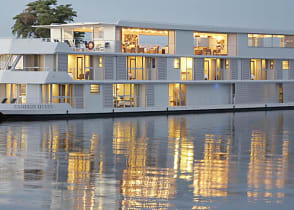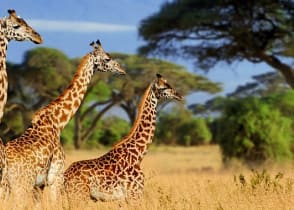6 Landscapes and Habitats to Explore on an African Safari

Estosha National Park, Namibia
The inherent idiosyncrasy of safari is fueled initially by the diversity of the African landscape and habitats that you can explore during your safari.
Wild, untrammeled, redolent, and vivid, it creates canvases of eclectic spectacles that extend in a variety of directions, showcasing a patchwork of colors. Open landscapes allow you to see more of the wildlife quickly on the horizon. Closed habitats offer a more hidden wildlife view. Find a salt pan that blinds nature's antiquity or a tangled forest scarred by rumbling elephant herds, a mammoth baobab tree, or the babble of snaking waterways.
Understanding the landscape and habitat is essential for what you will see and the intimacy of your experience when on safari, which will brim with infinite possibilities.
1. Savanna
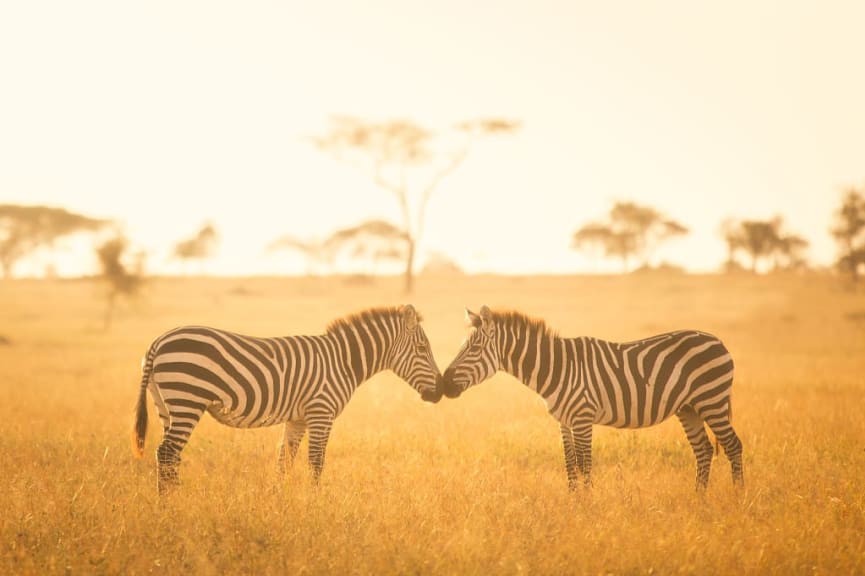
Serengeti, Tanzania
Savannas dominate the African safari, with carpets of grass punctuated by trees and shrubs not profuse enough to form a canopy. They provide a haven for many, creating a broad mix of vegetation that supports an abundance of species.
Grassland is dotted with trees or shrubs, with some bunching together to blossom beside a waterway or along an unseen slope that feeds on mountain rains.
Savannas are idyllic destinations for walking, horse riding, or bicycle safaris, enabling you to explore the mix of woodland and grassland for a menagerie of surprises.
Best Places with Savannas: South Africa • Tanzania • Kenya
2. Woodlands
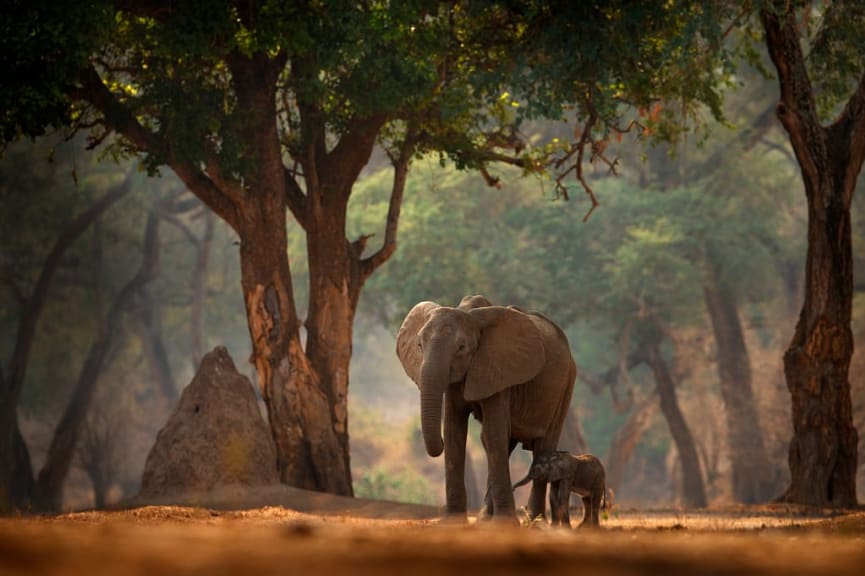
Mana Pools National Park, Zimbabwe
Pockets of woodland dapple the African landscape, often bounded by flowing rivers and permanent waters. They're the home of browsers and unfussy feeders that don't live in large herds.
Dense growth and permanent shade are also desired by predators, the woodland alive with a hushed presence. Stretches of woodland stand like isolated sentinels across the continent, small patches of fertility on the landscape.
The branches tangle in a maze of possibility, with your senses more alert to the reverberations of distant calls or clues to inhabitants when exploring on an African safari.
3. Tropical Forest and Jungle
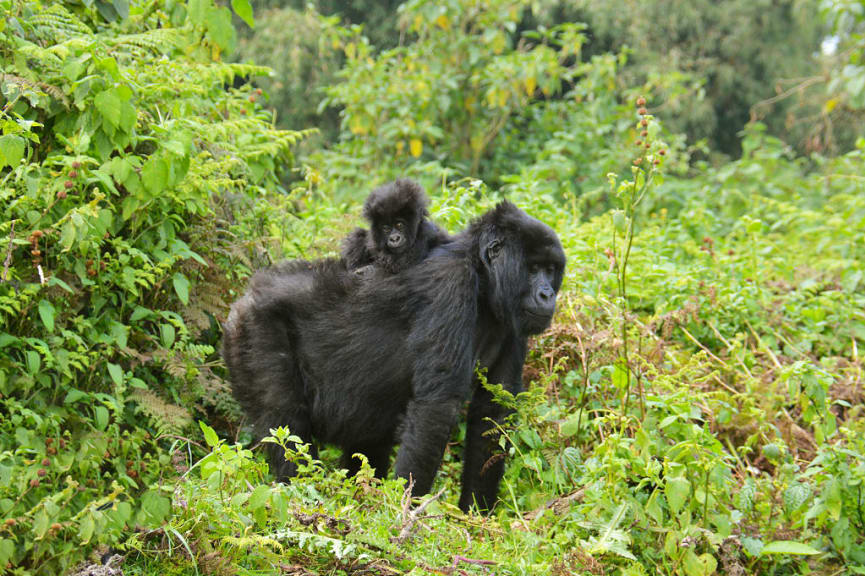
Volcanoes National Park, Rwanda
Tropical forests are the haven of primates and birdlife. They rarely form part of a traditional big-game safari, but create a space for more specialist excursions that dramatically contrast Africa's other habitats.
Lush and green, they're supplied by continual rain, with flora creating tangled concoctions of creeping roots and clashing branches. Most forests are unexplored, the stuff of legend that enticed and frightened colonial explorers in equal measure.
Open your senses and there's much to enjoy, with the forests offering something vastly different to the plains that surround them on a unique gorilla-trekking safari.
Best Places with Tropical Forests and Jungles: Uganda • Rwanda
4. Semi-Desert
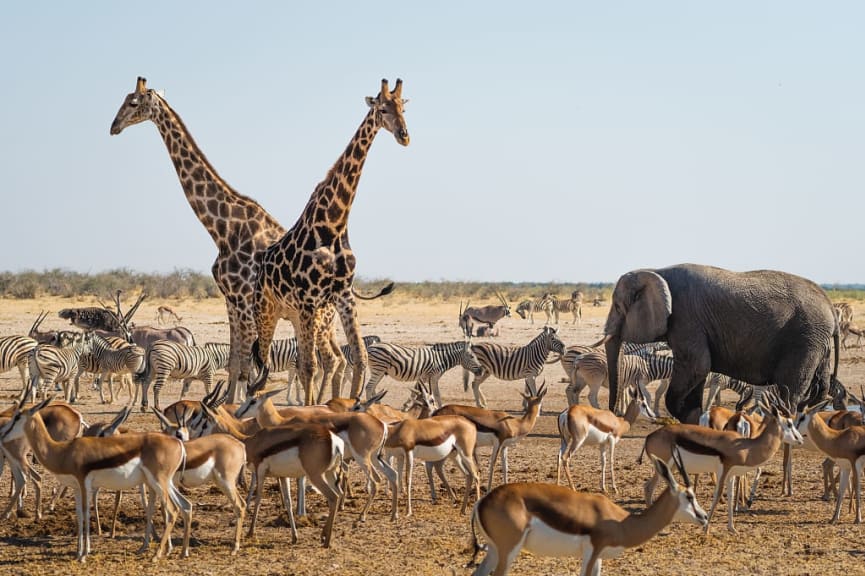
Estosha National Park, Namibia
Nomads wander and herds gather in Africa's semi-desert, the continual battle for survival epitomized by these arid, barren plains.
These semi-deserts are vast landscapes dappled with splendor, sometimes barren at first glance, but aerial vistas maximize the impression of their mammoth size and inhospitable nature, albeit with signs of life. An oasis appears from nowhere, the sprouting circle of water that attracts herds and prides.
The scale of these landscapes makes game drives almost essential to experience the semi-desert wildlife and wonders of the wilderness.
Best Places with Semi-Deserts: Namibia
5. Wetlands and Waterways
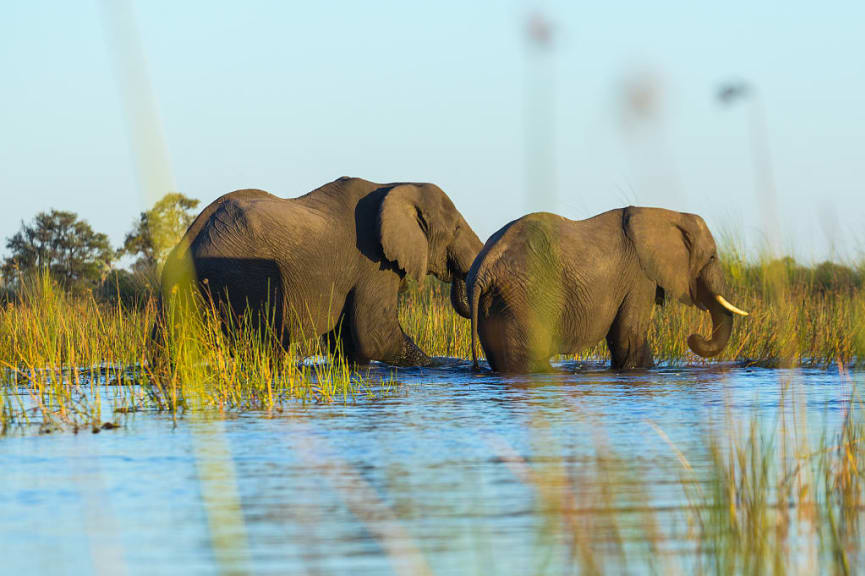
Okavango Delta, Botswana
Wetlands showcase Africa's bounty, the habitat dominated by lavish colors and the untethered excess of natural exuberance.
Rivers snake through the continent, spurting forests and growth as they weave across parks and reserves. The showcase of nature's riches attracts wildlife from thousands of miles around and transforms the landscape into a labyrinth of colors.
Wetlands are never quiet, with a natural soundtrack accompanying their colorful opulence and showcasing the increase in wildlife, whether explored by jeep or boat, from the Okavango Delta to wetlands that divide the Serengeti and Masai Mara.
Best Places with Wetlands and Waterways: Okavango Delta • Serengeti • Maasai Mara
6. Mountains
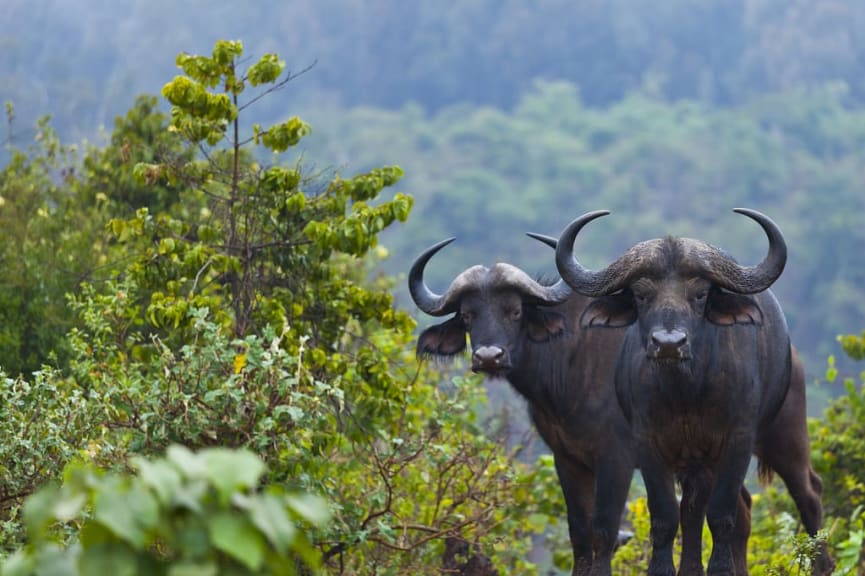
Aberdare Mountain Range, Kenya
Africa's iconic mountains are sporadically dotted with wildlife, yet invite safari goers to embrace the breathtaking natural beauty of the rugged landscape.
The Great Rift Valley cuts a dramatic scar north to south through the continent, hiding wildlife within its multiple folds. Then a bubbling belt of volcanic history runs east to west, offering resplendent conical peaks, while Central Africa’s volcanic mountains seem to define lush jungle terrain.
You can explore the summits that rise intermittently across Tanzania, Kenya, and Uganda, or Namibia's desert, which is also punctuated by the surreal peaks of Damaraland. For contrast, there’s the Table Mountain chain that runs to the tip of southwestern Africa.
Best Places with Mountains: Kenya & Tanzania • South Africa
Discover the Best African Landscapes for Your Trip
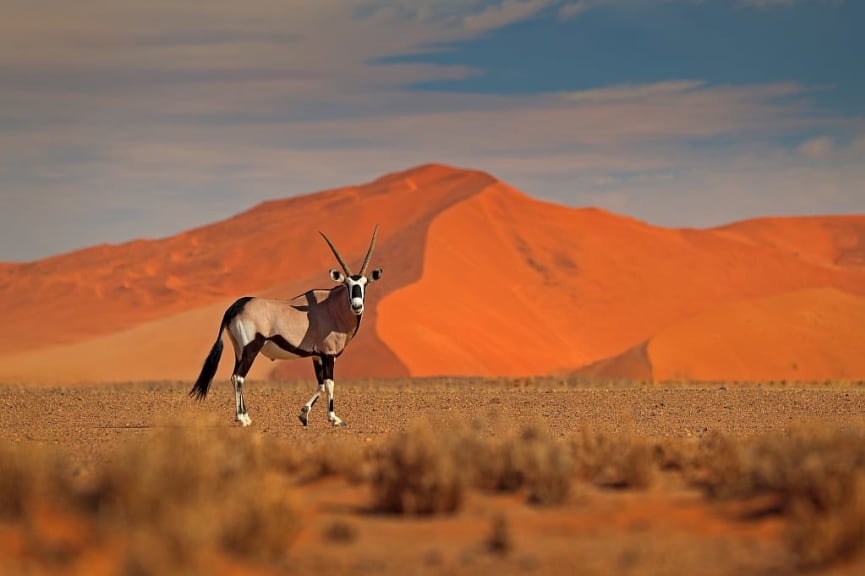
Sossusvlei, Namibia
The landscapes and habitats of an African safari can be fluid, with each park presenting its own unique combination of color, waterways, trees, sands, and plains. With each new African safari, you can sense the changes in the setting through sight, sound, and aroma for a deeper understanding of how the landscape and its inhabitants shape the character.
With a captivating combination of unique experiences and plentiful options, you can find more information for your trip with our African safari guide.
Life-Enriching Travel Designed Just for You
- 1
Trips curated by the world’s top destination experts
- 2
Concierge-level service leading up to and during your trip
- 3
Unique, exclusive experiences and insider access
